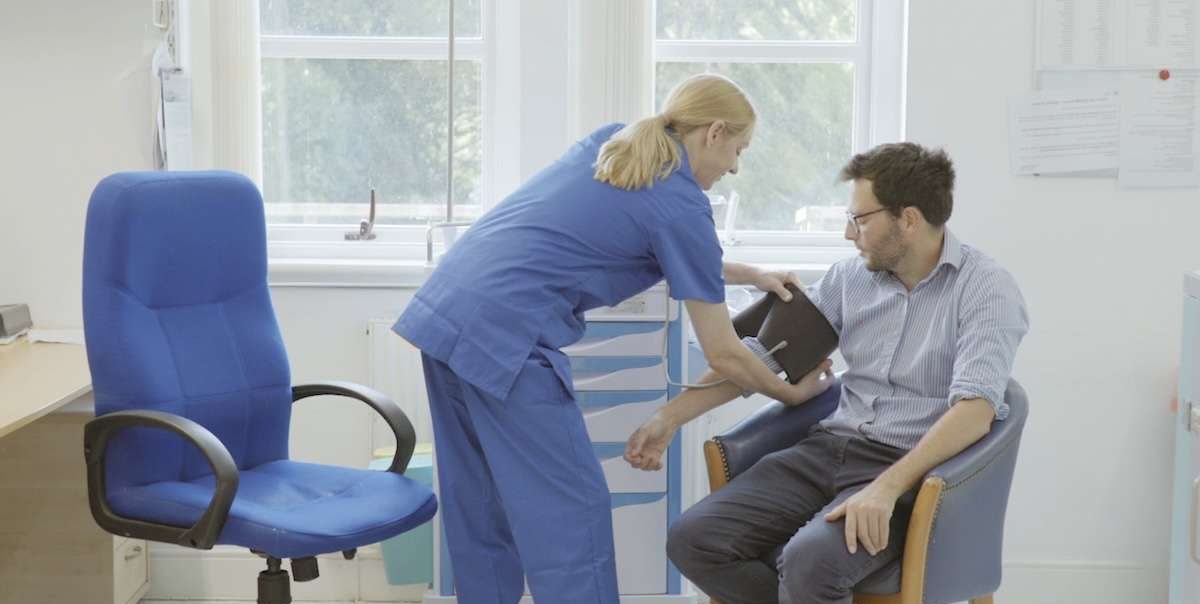
Antidepressant Withdrawal Treatment
Castle Craig is a leading residential treatment centre in Scotland, offering medically managed prescription drug detox in a safe and supportive environment. We specialise in helping people safely withdraw from medications with clinical support and 24-hour medical care. Our tranquil, private setting in the Scottish countryside is ideal for recovery, with expert dual diagnosis care for those experiencing both depression and prescribed drug dependence. Our whole-person approach includes evidence-based therapies delivered by a compassionate, skilled team.
This article will explain what to expect when detoxing from antidepressants, including how long antidepressant withdrawals last and what symptoms may arise. You’ll also learn about the different stages of antidepressant detox, timelines and the role of medications in easing symptoms. If you’re looking for antidepressant detox centres near you or want to know more about our residential prescription drug withdrawal treatment, call Castle Craig on 01721 546 263 for confidential advice and support.
Can You Get Addicted to Antidepressants?
Yes, while antidepressants are not considered addictive in the same way as opioids or benzodiazepines, they can still lead to physical dependence and psychological reliance. In some cases, misuse may occur, especially when people take higher doses than prescribed or continue using them without medical oversight.
Misusing antidepressants can disrupt how these medications regulate brain chemicals like serotonin, dopamine and norepinephrine. Instead of supporting mood balance as intended, irregular use (such as taking too much, too little or combining with other substances) can interfere with neurotransmitter activity, potentially worsening symptoms like anxiety, low mood or emotional instability.
Emotional dependence can develop when someone feels unable to cope without the medication. This is why stopping antidepressants suddenly can be difficult. A slow, medically guided taper is essential to reduce withdrawal symptoms and support mental and emotional well-being during the detox process. If you or someone you know is struggling and needs help with paroxetine dependence, venlafaxine withdrawal symptoms or citalopram addiction detox, contact us today to find out how we can help you.
What is Antidepressant Detoxification?
Antidepressant detoxification involves the gradual reduction and elimination of antidepressant medications from the body. Unlike detox from addictive substances, this process focuses on managing withdrawal symptoms safely rather than overcoming physical addiction.
A structured antidepressant detox can benefit those who have used these medications long-term or at high doses. It helps minimise physical and psychological withdrawal effects and supports a safer transition to ongoing prescription drug rehab or depression therapy under professional care.

Start Your Recovery at a Residential Rehab Today
What is a Medically Managed Depression Medication Withdrawal Clinic?
A medically managed withdrawal clinic for depression medication provides supervised care to help patients taper off antidepressants safely. The focus is on reducing withdrawal symptoms through careful monitoring and expert guidance.
Medically supervised antidepressant tapering involves gradual dose reduction tailored to the individual’s needs. This approach minimises discomfort and supports mental health stability throughout the withdrawal period.
Free Antidepressant Dependency Evaluation
Castle Craig offers free, confidential evaluations for those who may be dependent on antidepressants, as well as assessments for drug and alcohol use. This initial review helps our clinical team understand your situation and recommend the most suitable treatment options based on your needs.
Following the assessment, we can build a comprehensive detox and rehab treatment plan that includes antidepressant withdrawal management. We understand how difficult it can be to ask for help, and we’re here to support you with compassion and care. Call us today on 01721 546 263 to speak with a member of our admissions team.
Free Prescription Drug Addiction Assessment
Taking the first step and asking for help can feel daunting, but our team is here to assist you.
Benefits of Residential Mood Stabilisers Detox and Withdrawal Treatment
Residential medically managed detox for mood stabilisers provides a secure and structured environment where withdrawal can be managed with professional care. With 24/7 support and specialist medical input, patients can stabilise more comfortably and safely than they might at home.
The benefits of inpatient care go beyond managing physical symptoms. Below, we explore how residential prescription drug addiction treatment supports emotional recovery, stabilises medication changes and helps individuals begin a safer, more supported path toward improved mental health.
-
24/7 Supervision with Access to Mental Health Medication
Around-the-clock supervision helps detect and manage antidepressant withdrawal symptoms as they arise, reducing the risks associated with unsupervised withdrawal. Staff are trained to respond to sudden changes in mental or physical health, making the detox process safer.
Consistent access to medical care means any necessary mental health medication can be administered appropriately. This helps protect emotional stability and prevents the worsening of psychiatric symptoms during the transition off mood stabilisers.
-
Safe Environment Free from Prescription Mood Triggers
Inpatient recovery treatment removes day-to-day stress, access to mood-altering substances and emotional triggers that can make antidepressant withdrawal more difficult. This creates a space where patients can focus entirely on recovery.
Castle Craig provides a peaceful setting away from the distractions and pressures of everyday life. The absence of triggering environments plays a key role in helping patients stabilise and start the healing process with a fresh perspective.
-
Medical Support for Managing Brain Chemistry and Mood
Withdrawing from mood stabilisers can cause shifts in brain chemistry that affect how a person thinks and feels. Medical oversight ensures these changes are monitored and addressed as they emerge.
Close supervision also allows clinicians to adjust medications gradually, reducing the risk of emotional instability. This medical support helps patients remain more balanced and helps improve their ability to engage in therapy and recovery work.
-
Responsible Use of Depression-Relief and Serotonin Medication
During serotonin medication detox, supportive medicines may be introduced to help ease emotional distress or serotonin imbalance. These are selected carefully and only used when clinically appropriate.
Our clinical teams at Castle Craig use evidence-based treatment protocols when prescribing any medicine to support patients who may be vulnerable to low mood, anxiety or emotional withdrawal. When administered appropriately, detox medications can make the initial process feel less overwhelming and more manageable.
-
Tailored Treatment Plans with Psychiatric Medication Oversight
Personalised treatment is highly beneficial to a safe and effective detox, especially when psychiatric medication is involved. Each patient has different needs based on their mental health history and response to medication changes.
Specialist psychiatrists oversee the withdrawal process, adjusting the care plan based on real-time assessments. Individual approaches can help reduce complications and support stable progress during early antidepressant dependency recovery.
-
Integrated Care with Counselling and Mental Health Therapy
Detoxing from mood stabilisers often stirs up unresolved emotional symptoms. Combining therapy with appropriate medication support helps patients process these feelings while maintaining emotional stability.
In our integrated programme, Castle Craig combines medical care with psychological addiction therapy. Our compassionate understanding and dual approach ensure that both the physical and emotional aspects of antidepressant withdrawal are managed with professional care and support.
-
Emotional Relief Through Natural Low-Mood Supplements
People detoxing from psychotropic drugs may experience emotional lows such as sadness, hopelessness or agitation. Supportive low-mood supplements can help reduce the severity of these symptoms during early withdrawal.
Used carefully and with ongoing monitoring, natural low-mood medications like melatonin can ease emotional discomfort and help patients feel more grounded. This may improve engagement in therapy and allow space for psychological healing.
-
Smoother Transition to Ongoing Recovery From Antidepressant Pills
Successfully coming off antidepressants can be a sensitive and complex stage of addiction treatment. A structured detox allows for a smoother, more stable transition, especially when supported by a multidisciplinary team. Gradual tapering, rather than sudden withdrawal, helps reduce the severity of symptoms and supports emotional stability throughout the process.
At Castle Craig, patients benefit from coordinated care that bridges detox with ongoing prescription drug rehab treatment and dual diagnosis care for addiction and mental health. This continuity promotes emotional resilience and reduces the risk of early relapse, offering a clearer path forward in recovery.
Private Medically Managed Antidepressant Detox Centre Near Me
Finding a private, medically managed antidepressant detox centre nearby can provide you with the specialised care needed for a safe and supported withdrawal. Castle Craig offers residential addiction treatment designed to support recovery in a calm and professional setting, helping individuals through every stage of detox and rehab.

Contact Castle Craig Antidepressant Detox Centre
Set in the scenic countryside near West Linton, Edinburgh, Castle Craig offers a discreet and nurturing environment for those seeking inpatient medical detox. Our centre combines medical expertise with a peaceful setting, creating the ideal space to focus fully on both addiction and mental health recovery away from everyday distractions.
Find Us
01721 546 263
info@castlecraig.co.uk
Castle Craig,
West Linton, Edinburgh, United Kingdom, EH46 7DH
If you or a loved one is ready to take the next step toward overcoming antidepressant dependency, call 01721 546 263 now. Our compassionate team is available to answer your questions and guide you through the admissions process with understanding and respect.
-
How to Find a Depression-Relief Medication Detox Centre Near You
Finding the right private antidepressant detox centre is an important step towards sobriety. Knowing what to look for can make the search less stressful and help you find a programme that suits your situation. Here are some key tips to guide you through the process:
- Search Online Using Specific Location Terms: Begin your search with clear phrases like “private inpatient antidepressant withdrawal clinic near me,” “antidepressant detox clinic UK,” or “medically supervised antidepressant tapering in Scotland.” This helps narrow down detox centres close to your area with the right specialisations.
- Prioritise Services Offering 24-Hour Medical Supervision: Detoxing from antidepressants can involve complex physical and emotional symptoms. Rehab centres that provide round-the-clock medical supervision can monitor your health closely, offer immediate support and adjust treatments as necessary for your safety.
- Explore Feedback from Former Patients: Reading reviews or testimonials can give you valuable insight into the quality of care, the environment and how well an antidepressant detox centre supports clients throughout their detox journey. Positive feedback often reflects a trustworthy and effective programme.
- Understand What the Programme Includes: Clarify whether the detox programme covers only medication tapering or if it integrates therapy, psychiatric support and aftercare planning. A comprehensive approach supports long-term addiction and mental health recovery beyond just detoxification.
- Get Clarity on Pricing and Payment Structures: Detox treatment costs in the UK can vary widely. Make sure you understand what is included in the price, such as assessments, medication, accommodation and therapy sessions, to avoid unexpected expenses.
- Ask Whether Private Insurance Can Be Used: If you have private health insurance, confirm whether the detox clinic accepts it and what paperwork or authorisations are required. This can help ease the financial burden of antidepressant detox treatment near you.
Find Out About Our Mental Health Prescription Detox Treatment
Castle Craig provides free psychoactive medicine dependency and substance addiction assessments as part of our admissions process. This helps us understand your needs and design the best possible treatment plan for your recovery journey.
We offer 4-week, 6-week and 12-week programmes that include antidepressant tapering alongside counselling for depression and addiction. Our compassionate team supports you throughout every stage, helping you work towards lasting well-being. If you’re feeling uncertain or overwhelmed by dependence on antidepressants, please call us anytime on 01721 546 263 – we’re here to listen and support you with kindness and care.
Signs, Symptoms and Effects of Antidepressant Withdrawal & Detoxification
Antidepressant withdrawal can involve a range of signs, symptoms and effects that vary from person to person. Below are some common symptoms experienced during the detoxification process, though it may not cover every possible reaction. Understanding these can help prepare for the journey ahead.
-
Early Symptoms of SSRI Medication Withdrawal
Early withdrawal symptoms often begin within hours to a few days after reducing or stopping antidepressant medication. These initial signs can be subtle but noticeable.
- Lightheadedness or dizziness: Feeling faint or unsteady is common as the brain adjusts to lower medication levels.
- Mild flu symptoms: You might experience tiredness, muscle aches or a general sense of being unwell, similar to a mild flu.
- Heightened irritability: Small frustrations can feel more intense, leading to increased impatience or mood swings.
- Increased anxiety: Feelings of nervousness or worry may rise as the body recalibrates without medication support.
- Sleep disruption: Difficulty falling or staying asleep can occur, affecting overall rest and recovery.
-
Moderate to Severe Signs of Antidepressant Withdrawal Syndrome
Moderate to severe antidepressant withdrawal symptoms typically develop within the first week after stopping or reducing tablets. These symptoms can be more intense and may require close monitoring and support.
- Brain surges: Sudden, electric shock-like sensations in the head, often called “brain zaps,” can be unsettling and frequent.
- Intense mood swings: Rapid changes in emotions, ranging from deep sadness to irritability, can disrupt daily life.
- Nausea and vomiting: The digestive system may react strongly, causing stomach upset and vomiting during withdrawal.
- Agitation or aggression: Heightened restlessness or irritability can lead to confrontational behaviour or frustration.
- Suicidal thoughts: In some cases, withdrawal may intensify feelings of hopelessness or self-harm risk, requiring urgent professional help.
-
Psychological Effects of Depression Tablet Withdrawal
Psychological symptoms often begin within days of reducing or stopping antidepressants and can last several weeks. These effects impact emotional stability and mental well-being throughout the withdrawal process.
- Depression or low mood: Feelings of sadness or hopelessness may return or worsen during withdrawal.
- Anxiety spikes: Sudden increases in anxiety can cause overwhelming worry or nervousness.
- Increased irritability: Small frustrations may trigger stronger-than-usual reactions or impatience.
- Emotional sensitivity: Heightened feelings can make one more easily upset or overwhelmed by everyday situations.
- Panic episodes: Sudden, intense bouts of fear or panic may occur unexpectedly during withdrawal.
-
Physical Signs and Symptoms During Antidepressant Detox
Physical symptoms of antidepressant detox often begin within days of dose reduction and can persist for several weeks. They reflect the body adjusting to changes in brain chemistry as medication levels decrease.
- Dizziness spells: Brief episodes of lightheadedness or loss of balance are common during early antidepressant withdrawal stages.
- Head pressure: A sensation of tightness or heaviness in the head can occur as the body adapts.
- Waves of nausea: Sudden feelings of queasiness may come and go, sometimes accompanied by an upset stomach.
- Muscle tension: Stiffness or tightness in muscles often develops, causing discomfort or mild pain.
- Visual disturbances: Blurred vision or seeing flashes of light may happen temporarily during antidepressant detox.
-
Long-Term Effects Without Antidepressant Tapering Support
Without careful tapering and support, psychoactive medication withdrawal symptoms can persist for weeks or months, impacting overall recovery. Long-term effects often result from abrupt changes in brain chemistry without medical guidance.
- Prolonged anxiety: Ongoing feelings of nervousness or worry may last far beyond the initial withdrawal phase.
- Mood instability: Frequent and unpredictable mood changes can disrupt daily life and relationships.
- Cognitive fog: Difficulty concentrating, memory lapses, and mental sluggishness may persist for extended periods.
- Sleep disturbances: Trouble falling asleep or staying asleep can continue long after stopping medication.
- Emotional numbness: A reduced ability to feel emotions fully may linger, affecting motivation and social connection.

Medications Used for Antidepressant Detoxification
Medication use during antidepressant detox varies depending on individual needs and the severity of withdrawal symptoms. Not everyone requires medication, but when used, it’s carefully selected to ease symptoms and support a safer, more comfortable tapering process. Below are some common medications that could be used in the short term during an antidepressant detox in the UK. Some carry risks and must be administered under professional supervision to avoid complications.
- Trazodone (for sleep support and mood stabilisation): Often prescribed to improve sleep quality and stabilise mood during detox. It helps reduce insomnia without the addictive risks associated with some sleep aids.
- Clonidine (helps reduce anxiety and physical withdrawal symptoms): Used to ease anxiety, sweating and other physical withdrawal symptoms. It must be monitored closely to avoid side effects such as low blood pressure.
- Gabapentin (manages nerve-related symptoms and restlessness): Can help to relieve nerve pain and reduce restlessness or agitation that may occur during antidepressant withdrawal. It requires medical supervision to avoid misuse.
- Benzodiazepines (short-term use for anxiety or insomnia, e.g., lorazepam): Prescribed for brief periods to manage severe anxiety or insomnia during prescription drug detox. Due to dependence risks, they are used cautiously and under strict medical guidance.
- Propranolol (controls physical symptoms like rapid heartbeat): This beta-blocker helps control physical symptoms such as increased heart rate and tremors during depressive medication withdrawal, improving comfort and safety.
- Selective serotonin reuptake inhibitors (sometimes tapered or switched to manage withdrawal): Depending on the individual, some SSRIs may be gradually reduced or temporarily replaced with other antidepressants to ease withdrawal symptoms and avoid relapse.
- Melatonin (natural sleep aid to help with insomnia): A hormone supplement that supports natural sleep cycles, helping manage insomnia in a non-addictive way during psychoactive medication detox.
- Vitamin and mineral supplements (to support overall brain and body health): Used to address nutritional deficiencies and support recovery by promoting brain function and physical health during antidepressant detoxification.
At Castle Craig, our approach to the use of detox medications is conducted with the highest level of responsibility so that they do not result in a new dependency. We understand that this may be a concern for some patients, and we are here to assure you that antidepressant detox medicines are prescribed only when clinically necessary and are closely managed under the care of our Consultant Psychiatrist and trained medical staff.
Our primary objective is the safe and effective easing of withdrawal symptoms, with a commitment to your recovery and the aim of abstinence from harmful substance use. By using evidence-based protocols and continuous progress evaluations, we strategically utilise detox medications as a temporary aid to facilitate your transition to sobriety, always placing your lasting health and well-being at the forefront of our approach.

Contact Castle Craig Today
If you or a loved one is struggling with antidepressant dependence alongside depression or another mental health condition, Castle Craig is here to help. Our residential dual diagnosis treatment combines compassionate medical care with evidence-based therapy in a calm and private setting, helping patients stabilise and begin meaningful recovery.
We understand how difficult taking the first step can be, and are here to answer your questions.
Does Health and Medical Insurance Cover Antidepressant Detoxification Treatment?
Health and medical insurance may cover antidepressant detox treatment in the UK, although this depends on your individual policy and provider. Coverage often varies based on the level of insurance, the treatment setting and whether detox is deemed medically necessary by your healthcare provider.
If your insurer authorises detox treatment for antidepressant dependency at our facility and you have suitable coverage, Castle Craig does accept private health and medical insurance from many providers. Contact us today to discuss payment options confidentially.
How Much Does Residential Depression Medication Detox Cost?
The cost of antidepressant detox alone in the UK typically ranges from £1,000 to £6,000 for a 7–10 day period. However, detox is usually just the first step in a broader treatment plan. Within a full residential programme, daily costs can range from £650 to £1,500, or £4,500 to £10,000 per week, depending on the facility and services included.
Prescription drug rehab costs can vary depending on the complexity of your needs and the length of your stay. To learn more about Castle Craig’s residential detox and integrated treatment pricing, call our team on 01721 546 263.
Mood Stabilisers Detox Timeline and How Long It Takes
The antidepressant detox timeline can vary widely from person to person. Factors like dosage, duration of use and individual brain chemistry influence how long detoxing from antidepressants takes. This guide outlines a general timeline, but professional medical support is always recommended, especially for those with a history of antidepressant dependence or emotional health concerns. Counselling and therapy are key to maintaining long-term stability after detox.
-
Stage 1: Early Withdrawal Symptoms (6–12 Hours After Last Dose)
Within the first 6 to 12 hours, early signs of antidepressant withdrawal symptoms may begin to appear. These can include mild dizziness, anxiety or difficulty concentrating. Many individuals also experience sleep disturbances and a return of emotional sensitivity as the brain reacts to the absence of serotonin medication.
While this stage may seem mild at first, it can quickly progress. Having professional support during this time is vital, as early symptoms can often trigger distress or confusion, particularly if mood stabilisers were used to manage underlying depression or anxiety. Medically managed detox can help reduce these effects and provide a safer experience.
-
Stage 2: Peak Antidepressant Withdrawal Symptoms (24–72 Hours)
This is often the most difficult phase of detoxing from antidepressants. Withdrawal symptoms tend to peak within 24 to 72 hours and may include mood swings, nausea, brain zaps, agitation or flu-like symptoms. Emotional responses can become intense, especially in those with a history of mental health struggles.
Medical antidepressant detox at a residential centre can provide relief during this stage. At Castle Craig, our experienced team supports patients 24/7 to help manage both physical discomfort and emotional distress. Medication may be introduced to reduce more disruptive symptoms and support stabilisation.
-
Stage 3: Subsiding Symptoms and Stabilisation (3–7 Days)
Between days 3 and 7, the most intense antidepressant withdrawal symptoms typically begin to lessen. Some people may still notice low energy, irritability and fluctuating mood, but the body and brain begin to adjust to functioning without depression medication.
In a structured antidepressant detox programme, this phase allows space for reflection, rest and psychological support. At Castle Craig, we focus on beginning integrated therapy, addressing both emotional well-being and mental clarity as part of ongoing prescription drug recovery. This stage lays the foundation for continued healing beyond detox.

Related Guides on Medically Managed Residential Detox
Detox Centre | Inpatient Detox | Alcohol | Drugs | Cocaine | Heroin | Crystal Meth | Valium | Tramadol | Benzodiazepines | Xanax | Codeine | Opioid | Ecstasy | Morphine | Amphetamine | Cannabis
Inpatient Antidepressant Detox Treatment Admissions Process
Starting antidepressant detox treatment can feel like a big step, which is why our admissions process is designed to be simple, supportive and informative from the outset. We aim to make every stage clear and approachable, so that patients and their families can feel confident in choosing Castle Craig for safe withdrawal and recovery.
- Private Initial Consultation and Evaluation of Antidepressant Use: During this confidential conversation, we gather a detailed understanding of your antidepressant history, current symptoms and any concerns you may have. This is an opportunity to ask questions and speak openly with our admissions staff about what support you’re looking for.
- Clinical Assessment and Suitability for Detox Admission: Our clinical team will review your mental and physical health, GP records, current medications and any co-occurring conditions to assess whether inpatient detox is the most appropriate route. If so, they will design a safe, step-down plan tailored to your needs.
- Reviewing Payment Options and Securing Insurance Authorisation: Our team can help explore available payment methods. We aim to be transparent about costs and help you access treatment without unnecessary delays.
- Admission Process and Patient Introduction to Inpatient Detox: Once a place is confirmed, you’ll be welcomed by our nursing and clinical team, shown around the facility and introduced to the structure of your stay. Our goal is to help you feel safe and settled as soon as possible.
- Continuous Medical Supervision and Discharge Preparation: Throughout residential detox, your health will be closely monitored with adjustments made as needed to keep you comfortable. Towards the end of your stay, we’ll begin discharge planning and discuss next steps, including therapeutic support or longer rehab programmes if appropriate.
Questions About Detox for Antidepressants?
Contact us to discuss your treatment needs with a licensed clinician.
Find Out About Our Prescription Medication Detox Treatment
Castle Craig has a private, 11-bed medically managed detox centre onsite, offering a safe and supportive space for those beginning recovery from prescription drug dependence. Our experienced clinical team is available around the clock to monitor symptoms and provide compassionate care in a calm, therapeutic setting.
We create personalised treatment plans for those struggling with psychoactive drug dependence, guided by expert psychiatric and medical input. Our admissions team can provide accurate, all-inclusive pricing for residential detox and rehab programmes. Call us today on 01721 546 263 to speak with someone who is ready to listen and understand without judgement.
Free Antidepressant Addiction Assessment
Compassionate, expertly delivered evidence-based practices and a patient-centred approach are at the heart of our treatment model. Request a call-back from one of our professionals on any day of the week.
-
Statistics on Antidepressant Use in the UK
- In 2022–23, around 86 million antidepressant prescriptions were issued to 8.6 million patients in England, highlighting how common these medications are.
- A 2025 study by UCL found that among long-term antidepressant users (two years or more), 79% reported withdrawal symptoms, and 45% described them as moderate to severe. Those on treatment longer than two years were 10 times more likely to experience withdrawal.
- A review published in Lancet Psychiatry estimated that 15% of people (1 in 6) experience withdrawal symptoms when stopping antidepressants, with around 3% suffering severe effects.
- Between 2015 and 2021, the number of antidepressant prescriptions in England rose by 34.8%, from 61.9 million to 83.4 million items.
- A study found that 43% of participants who had tried to stop an antidepressant met the stringent definition of withdrawal syndrome, reporting four or more non-emotional withdrawal symptoms.
- According to a meta-analysis by the All‑Party Parliamentary Group, around 56% of people experience withdrawal symptoms when stopping antidepressants, and 46% of those report the symptoms as severe. Symptoms can last from 6 weeks to several months in up to 40% of cases.